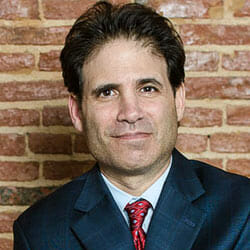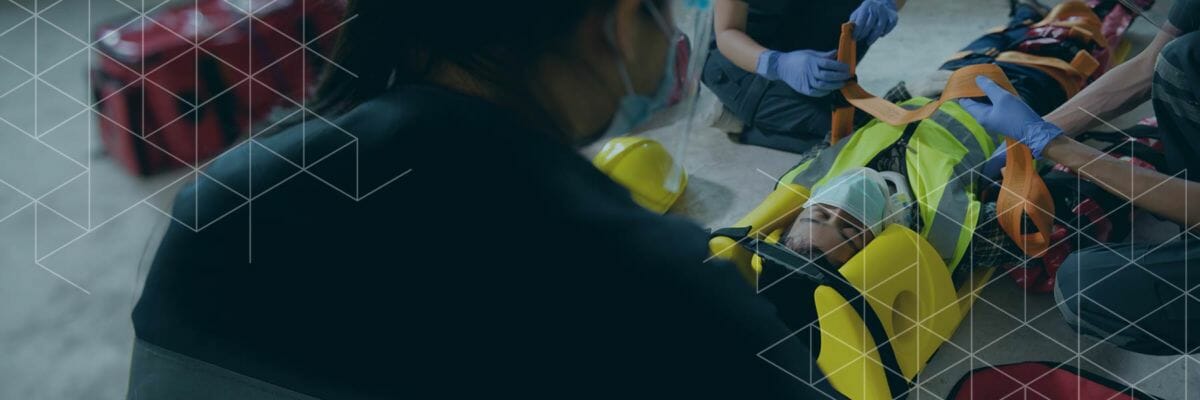 Catastrophic injuries create significant negative changes in a person’s life, permanently disrupting their quality of life: for example, someone whose accident left them unable to walk due to spinal cord injuries, or a person who is unable to work because of brain damage.
Catastrophic injuries create significant negative changes in a person’s life, permanently disrupting their quality of life: for example, someone whose accident left them unable to walk due to spinal cord injuries, or a person who is unable to work because of brain damage.
No legal definition exists that stipulates precisely which injuries are catastrophic and which ones are not. But if you or a family member has suffered from an injury serious enough that it prevents a return to work or has otherwise radically affected everyday life, the injury may well be catastrophic. Such damage often leaves behind enormous bills from doctors, hospitals, and rehab centers, months or years of lost wages, great pain and suffering, and perhaps even disfigurement. Sometimes a catastrophic injury may even cause death.
If another person brought about such personal distress and havoc through their carelessness or negligence, isn’t it right that they should bear the financial costs, at the very least? Even though money cannot make a person whole or bring a loved one back, it is the recourse we have through our judicial system. It is intended to ensure that grave injuries and wrongful deaths are treated seriously.
If what you’ve read so far sounds like your situation, the assistance you need is available from Maryland attorney Steven Heisler. Steve listens and cares, fighting for you so that you can take the road to financial recovery.
The Ways Catastrophic Injuries Can Occur
Some accidents count not have been prevented; but in reality, few accidents are situations where no one is at fault. While each tragedy is unique, the conduct of the negligent party often fits certain patterns or roles. The most common categories of catastrophic injury causes are vehicular accidents, workplace accidents, medical malpractice, and other personal injuries that arise from product liability, environmental toxins, carelessness around swimming pools, and nursing home negligence.
Vehicular Accidents
Collisions aren’t limited to passenger cars. Whenever any vehicle is not driven or handled with care and attention, negligent behavior can be responsible for severe injuries. Accidents can arise from careless operation of:
- Passenger vehicles. Crashes can result from drunk or drugged driving, distraction from cell phones, speeding, and other reasons.
- Tractor trailers and other large commercial vehicles.
- Motorcycle accidents. Often, it is another vehicle, and not the motorcyclist, that is responsible for the crash.
- Bicycle and pedestrian accidents. It’s no contest when someone on a bicycle or on foot is struck by a motor vehicle of any type.
- Boating accidents. With all our waterways, Maryland experiences hundreds of boating mishaps each year.
- RV accidents.
- Bus accidents.
Workplace Accidents
Nearly 3 million workers were injured on the job during 2016, with about one-third of them sustaining injuries severe enough to keep them out of work for an average of eight days, according to the U.S. Department of Labor. Many of us have jobs in occupations that can be downright dangerous. Some examples of catastrophic workplace circumstances are:
- Construction site accidents, which can include fall injuries from roofing work and the use of scaffolding, and crushing injuries from trenching and excavation jobs, often necessitate the expertise of a Baltimore construction accident lawyer.
- Accidents from heavy equipment at work sites that cause crushing injuries, spinal cord injuries, and amputations.
- Jobs that require you to work with corrosive or flammable materials, which can mean disfiguring and disabling burns.
- Explosions in the workplace, which result in brain injuries, internal organ injuries, amputations, and burns.
- Working around airborne chemicals and motor exhaust can create severe, chronic lung injuries and illnesses.
Medical Malpractice
Briefly, medical malpractice is defined as receiving treatment that fails to meet the accepted standard of care. Medical malpractice can occur in a number of situations:
- Anesthesia errors in the operating room can mean death, brain injuries, or other physical damage.
- Improperly installed medical devices can lead to life-threatening infections with lingering complications.
- Misdiagnosis of serious diseases like cancer can cut a person’s life short unnecessarily.
- Injuries that occur at the time of birth because of poor judgment on the medical professional’s part can Injuries that occur at the time of birth because of poor judgment on the medical professional’s part can mean a lifetime of difficulties for the infant. In such critical situations, consulting a Baltimore birth injury lawyer can provide the necessary legal support and guidance to navigate these complex issues.
- Medications that are prescribed inappropriately or with an incorrect dosage, or prescriptions that are filled incorrectly, can result in catastrophic injury.
Other Personal Injuries
Product liability, damage caused by environmental toxins, and negligent behaviors around swimming pools and in nursing homes can also create catastrophic damage:
- Defective products can injure and kill. One example is the Takata airbags that have taken the lives of over 100 persons.
- Environmental toxins such as lead paint, which causes permanent brain damage in children, and chemicals which contaminate the water supply, can cause severe, lasting injury to the body and brain.
- Negligent caretaking in nursing homes can turn chronic illness into a medical emergency, leaving a patient severely compromised either physically or mentally.
- Swimming pool accidents resulting from negligent supervision and other careless behaviors can result in drowning and brain injuries.
What Types of Catastrophic Injury Can You Help Me With?
At the Law Offices of Seven H. Heisler, we represent people from all walks of life who have suffered from one of the types of mishaps listed above. We focus on your injury, not the apparent severity of the accident, because it is the injury and its lasting effects that matter. The worst catastrophic injuries permanently damage:
- Cognitive abilities
- Communication abilities
- Mobility
- Longevity
- Physical wholeness and appearance.
Any of these conditions affect not only the victim, but also their spouse, partner, children, and other family members.
Specific classes of injuries that are often deemed catastrophic because of their radical effects on a person’s life are:
- Traumatic brain injuries (TBIs). Disability from TBI occurs in a substantial number of catastrophic accidents victims under 40.
- Paralysis and other spinal cord injuries. Numerous types of accidents can cause the difficulties that come with a loss of mobility.
- Amputations and limb loss from accidents. Amputations and limb loss can also arise from medical circumstances that are the result of malpractice or that are required to save a life after an accident.
- Severe burns. Frequently, disabling and disfiguring burns are produced by workplace accidents.
- Crushing injuries and multiple bone fractures.
- Internal organ damage that can mean the need for a transplant or other major surgery.
- Loss of vision or hearing.
- Disfigurement and scarring.
When catastrophic injury ends in death and another party could be considered at fault, a wrongful death case can be brought.
Compensation, Caps, and Statutes of Limitations
In Maryland, you can be eligible for compensation, also known as damages, that can be economic (covers actual bills and expenses) and non-economic (pain and suffering). Punitive damages, based on another party’s deliberate malice in causing the injury, are only rarely awarded.
For non-economic damages, limitations known as caps apply, and the limits are increased yearly by $15,000. The 2018 limit for non-economic damages is $845,000. Other limits can apply, depending on your case.
For most personal injury cases, you have three years from the date of the injury to file a suit. Other limitations may apply, depending on your case.
If you have questions, speaking with a skilled and caring attorney can help you fill in the blanks and determine whether you should move forward with your case.
We’re listening to you. How can we help?

The aftermath of a catastrophic injury is usually life-changing for the accident victim and their family members, and often it takes years of patience and dedication to overcome it. If you believe another party was responsible for the injuries and losses you have suffered in Maryland, Steven Heisler has the experience necessary to help you get your life back on track successfully. In the case of catastrophic injury, you may be entitled to damages for medical bills, lost wages, and pain and suffering. Keep in mind, however, that there is a statute of limitations for filing personal injury claims, so don’t delay. Call Steve today for a free initial consultation. If you prefer, you can use our confidential online form.

Attorney Steve Heisler
Steve Heisler decided in 1996 that he was going to focus his law practice exclusively on injury cases. Since then, he has been representing injured people against insurance companies, disreputable medical practitioners and Big Pharma, and doing it with compassion, honesty and level-headed rationality. [ Attorney Bio ]

